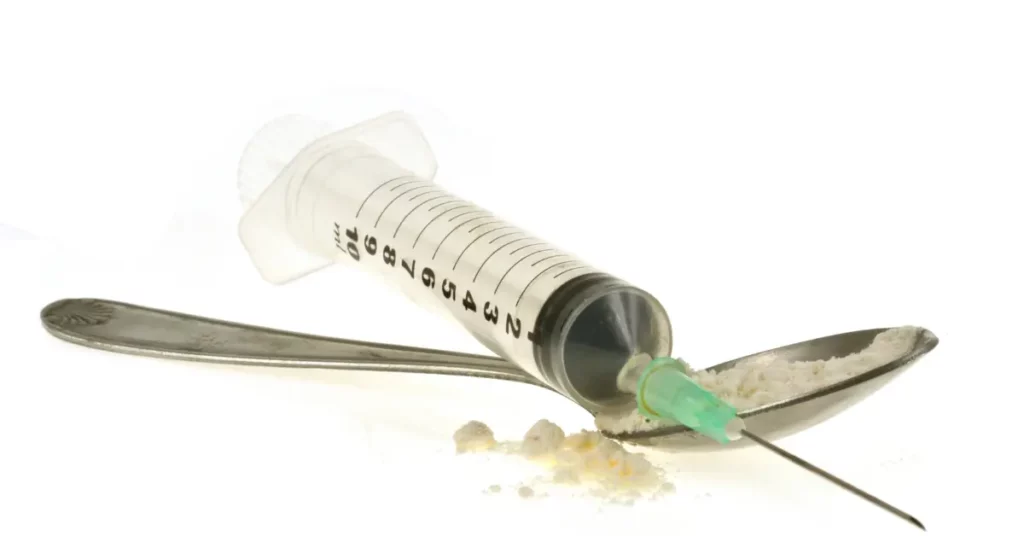
How Does Heroin Affect the Brain?
Heroin, a potent opioid drug derived from morphine, poses severe risks to both the body and mind. At Legacy Healing Center, we understand the devastating effects of heroin addiction and the urgent need for effective treatment. But how does heroin affect the brain, exactly?
We will delve into the complex and destructive relationship between heroin and the brain, offering a foundational understanding for those seeking to comprehend the challenges of addiction and the pathways to heroin addiction recovery. Join us as we explore the neurological impacts of heroin, shedding light on the mechanisms of addiction and the hope for healing.

What Is Heroin?
Heroin is an opioid drug derived from morphine, one of many naturally occurring opiates that comes from the poppy plant. Even though heroin comes from a natural plant, the substance is illegal and highly addictive. Heroin can be a white or brown powder or a black sticky substance known as black tar heroin.
Although heroin was once a prescription painkiller, the drug was outlawed in the early 20th century because it was extremely addictive. Heroin is a Schedule I drug, meaning it currently has no recognized medical use and is highly addictive, which also means it has a high potential for abuse.
How Does Heroin Affect the Brain?
Heroin use affects the brain in several ways. When the drug is used, it binds to the opioid receptors in the brain, which are responsible for regulating pain and pleasure. This causes a surge of dopamine in the brain, which produces intense feelings of euphoria and relaxation associated with the drug.
Over time, the brain becomes desensitized to the effects of heroin, and the user needs more and more of the drug to achieve the same level of pleasure. This is known as tolerance, and it can lead to increased use and the development of addiction.
Heroin use also affects the prefrontal cortex, which is responsible for decision-making and impulse control. Chronic heroin use can cause damage to this area of the brain, which can lead to poor decision-making and risky behavior.
Short-Term Effects of Heroin on the Brain
Heroin’s short-term impact on the brain is profound and immediate, altering mental health by inducing an intense, albeit artificial, sense of euphoria and well-being. This fleeting high is accompanied by a cascade of detrimental effects, including:
- Drowsiness and Impaired Memory: Users often experience overwhelming drowsiness and difficulty recalling recent events, as heroin dulls cognitive functions and disrupts normal brain activity.
- Slowed Breathing: Heroin significantly depresses the respiratory system, leading to dangerously slowed breathing rates that can result in life-threatening respiratory failure.
- Reduced Attention Span: The drug severely hampers the user’s ability to concentrate and maintain focus, leading to a marked decrease in attention and responsiveness.
- Heavy Limbs: Users frequently report a sensation of heaviness in their limbs, making even simple movements feel laborious and cumbersome.
- State of Confusion: Heroin clouds the mind, inducing a state of confusion and disorientation, further impairing the user’s ability to think clearly and make sound decisions.

Long-Term Effects of Heroin on the Brain
The long-term abuse of heroin inflicts severe and often irreversible damage to the brain and body. Chronic use leads to a host of debilitating health issues, including:
- Blood Clots: Persistent heroin use can cause blood clots, which can obstruct blood flow, leading to strokes or heart attacks.
- Lung Infections: Users are at heightened risk for lung infections, including serious conditions like tuberculosis and pneumonia, due to compromised immune function and frequent injection-related respiratory complications.
- Vascular Damage: Heroin severely damages blood vessels, especially those leading to vital organs such as the liver, lungs, and kidneys, increasing the risk of organ failure.
- Infectious Diseases: Sharing needles or using unsterile equipment puts users at high risk of contracting infectious diseases like hepatitis and HIV, which can further deteriorate overall health.
- Fatal Overdose: The most dire consequence of long-term heroin use is the heightened risk of fatal overdose, as the body becomes increasingly tolerant to the drug’s effects.
On a neurological level, the repercussions of sustained heroin use are profound:
- Cognitive Impairment: Users often suffer from significant cognitive deficits, impacting memory, decision-making, and overall mental function.
- Deterioration of White Matter: Heroin use accelerates the deterioration of white matter in the brain, which is crucial for communication between different brain regions, leading to impaired cognitive and motor functions.
- Long-Term Imbalances: The brain’s natural chemical balance is disrupted, resulting in chronic psychological issues such as depression, anxiety, and mood swings.
- Respiratory Suppression: Long-term heroin use perpetuates respiratory suppression, further compromising the oxygen supply to the brain and exacerbating overall health decline.
Find Help at Legacy Healing Center
Understanding how heroin affects the brain can help you avoid any type of abuse. But if you want to recover from heroin addiction, this is one of the most challenging drug use disorders to overcome. Accomplishing this alone is a bit like trying to climb Mount Everest without oxygen. Here at our treatment center, our holistic approach and team of compassionate professionals identify the treatment process best suited to the needs of an addicted individual.
If you or a loved one is struggling with a heroin addiction it is time to get some help. Contact Legacy Healing Center today. For more information on addiction, recovery, and related topics, check out our other informative treatment articles.






 Verify Insurance
Verify Insurance